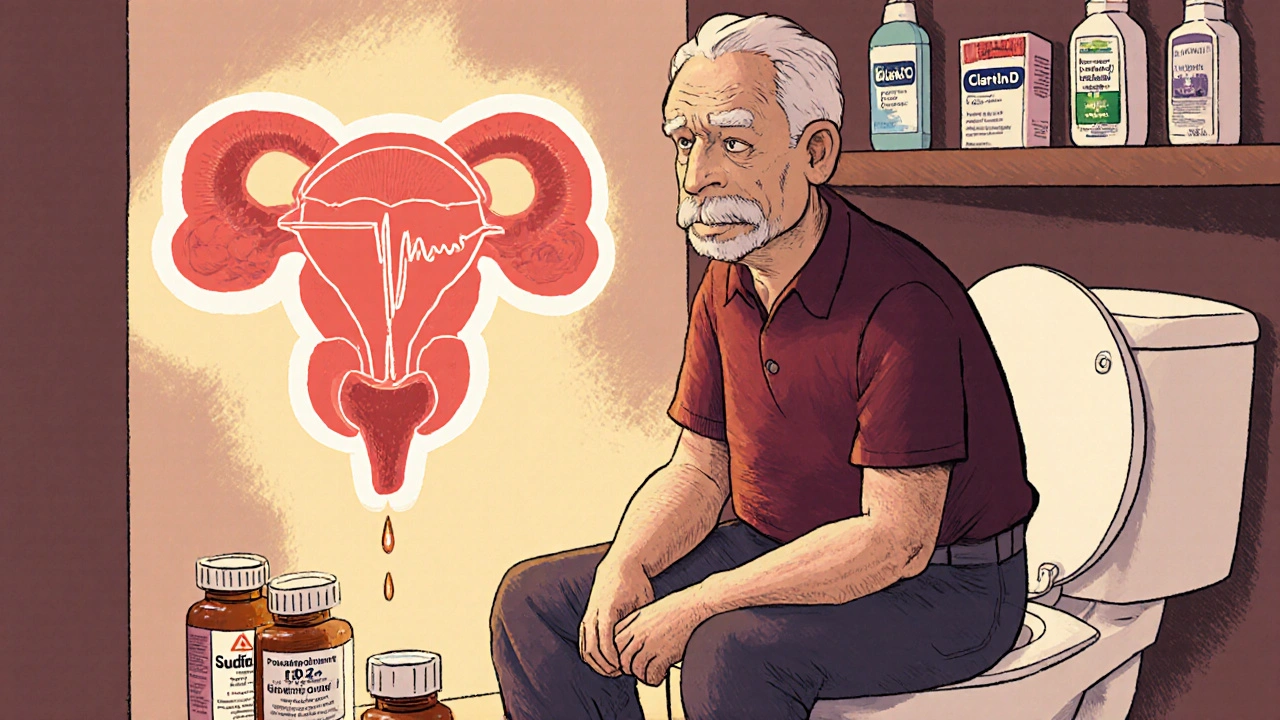Urinary Retention: Causes, Risks, and What You Need to Know
When your bladder fills up but you can’t fully empty it, that’s urinary retention, a condition where the bladder doesn’t empty properly, leading to discomfort, infection risk, or kidney damage. Also known as bladder retention, it’s not just an older person’s problem—it can happen to anyone, especially if they’re taking certain medications or have an enlarged prostate. It’s not just about not being able to pee on demand. If you feel the urge but nothing comes out, or you only pass a few drops, that’s a red flag. Left untreated, urinary retention can lead to urinary tract infections, bladder stones, or even kidney damage.
This condition often ties into other health issues. For example, benign prostatic hyperplasia (BPH), a non-cancerous enlargement of the prostate that squeezes the urethra, is one of the most common causes in men over 50. But it’s not the only one. Nerve damage from diabetes, spinal injuries, or even some medication side effects, like those from antihistamines, decongestants, or antidepressants, can block your bladder’s ability to contract. Even constipation can push on the bladder and make retention worse. You might not connect the dots, but what you take daily—whether it’s for allergies, depression, or a cold—could be quietly affecting your urinary system.
Some people live with mild urinary retention for months without realizing it. They just think they’re peeing less often or need to go more frequently at night. But if you’re straining, feeling full after peeing, or having accidents because your bladder overflows, that’s not normal. The good news? It’s usually treatable. Whether it’s through a simple catheter, a change in meds, or treating the root cause like BPH, help is available. The key is catching it early before complications set in.
The posts here cover real-world scenarios where urinary retention shows up—not as a standalone issue, but as a side effect, a warning sign, or a hidden consequence of other treatments. You’ll find guides on how common drugs like anticholinergics or opioids can trigger retention, how to recognize the early signs before it becomes an emergency, and what alternatives exist if your current meds are causing problems. There’s also practical advice on managing symptoms at home, when to call a doctor, and how to talk to your pharmacist about drug interactions that might be silently affecting your bladder. This isn’t just about symptoms—it’s about understanding the systems behind them and making smarter choices for your body.

- 10 Comments
Men with enlarged prostates face serious urinary retention risks from common decongestants like pseudoephedrine. Learn which cold meds to avoid, safer alternatives, and what to do if you can't urinate.
